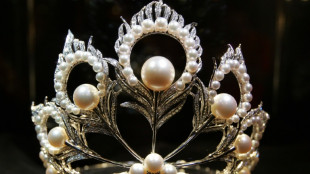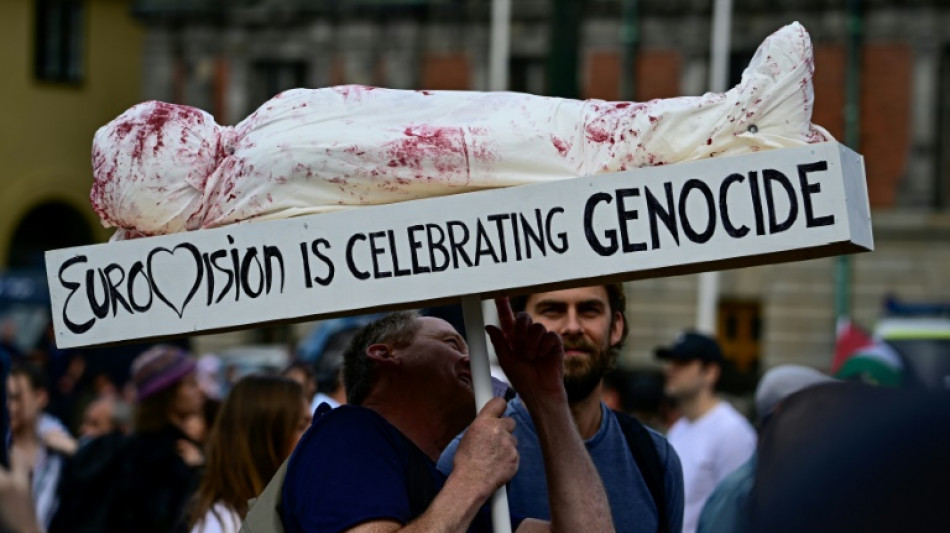
-
 Scandic Trust Group strengthens sales network with First Idea Consultant
Scandic Trust Group strengthens sales network with First Idea Consultant
-
Central Nigerian town rebuilds religious trust in shadow of Trump's threat

-
 Inside Germany's rare earth treasure chest
Inside Germany's rare earth treasure chest
-
Former jihadist Syrian leader makes unprecedented White House visit

-
 Kagiyama takes NHK lead in Japan to kick-start Olympic season
Kagiyama takes NHK lead in Japan to kick-start Olympic season
-
Ikea profits drop on lower prices, tariff costs

-
 European, Asian stocks decline after Wall Street slide
European, Asian stocks decline after Wall Street slide
-
German FA extends with president Neuendorf until 2029

-
 No end to Sudan fighting despite RSF paramilitaries backing truce plan
No end to Sudan fighting despite RSF paramilitaries backing truce plan
-
US officials, NGOs cry foul as Washington snubs UN rights review

-
 Injured teen medal hope Tabanelli risks missing home Winter Olympics
Injured teen medal hope Tabanelli risks missing home Winter Olympics
-
Bellingham, Foden recalled to England squad for World Cup qualifiers

-
 Tanzania rights group condemns 'reprisal killings' of civilians
Tanzania rights group condemns 'reprisal killings' of civilians
-
Slot urges patience as Isak returns to training with Liverpool
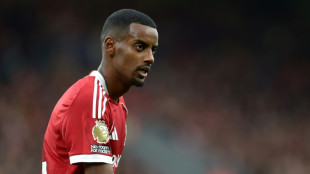
-
 Rees-Zammit set for Wales return with bench role against Argentina
Rees-Zammit set for Wales return with bench role against Argentina
-
China's new aircraft carrier enters service in key move to modernise fleet

-
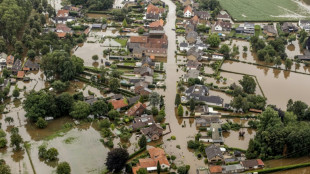 Operation Cloudburst: Dutch train for 'water bomb' floods
Operation Cloudburst: Dutch train for 'water bomb' floods
-
Leaders turn up the heat on fossil fuels at Amazon climate summit
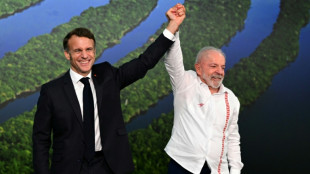
-
 US travel woes mount as govt shutdown prompts flight cuts
US travel woes mount as govt shutdown prompts flight cuts
-
North Korea fires unidentified ballistic missile: Seoul military
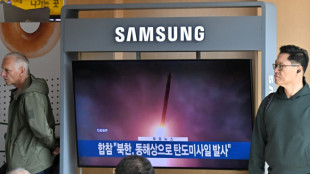
-
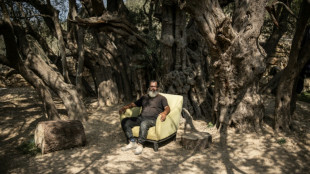 West Bank's ancient olive tree a 'symbol of Palestinian endurance'
West Bank's ancient olive tree a 'symbol of Palestinian endurance'
-
Global tech tensions overshadow Web Summit's AI and robots

-
 Green shines as Suns thump Clippers 115-102
Green shines as Suns thump Clippers 115-102
-
Japan to screen #MeToo film months after Oscar nomination

-
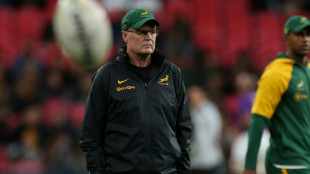 Erasmus relishing 'brutal' France re-match on Paris return
Erasmus relishing 'brutal' France re-match on Paris return
-
Rejuvenated Vlahovic taking the reins for Juve ahead of Turin derby

-
 'Well-oiled' Leipzig humming along in Bayern's slipstream
'Well-oiled' Leipzig humming along in Bayern's slipstream
-
Bangladesh cricket probes sexual harassment claims

-
 NFL-best Broncos edge Raiders to win seventh in a row
NFL-best Broncos edge Raiders to win seventh in a row
-
Deadly Typhoon Kalmaegi ravages Vietnam, Philippines
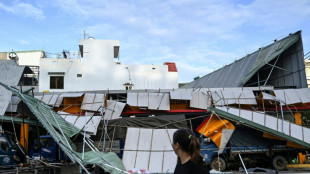
-
 Three killed in new US strike on alleged drug boat, toll at 70
Three killed in new US strike on alleged drug boat, toll at 70
-
Chinese microdrama creators turn to AI despite job loss concerns

-
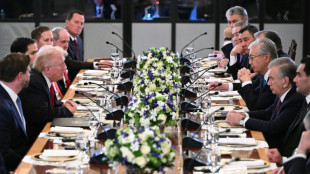 Trump hails Central Asia's 'unbelievable potential' at summit
Trump hails Central Asia's 'unbelievable potential' at summit
-
Kolya, the Ukrainian teen preparing for frontline battle

-
 Big leap in quest to get to bottom of climate ice mystery
Big leap in quest to get to bottom of climate ice mystery
-
Markets drop as valuations and US jobs, rates spook investors
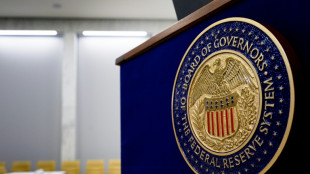
-
 'Soap opera on cocaine': how vertical dramas flipped Hollywood
'Soap opera on cocaine': how vertical dramas flipped Hollywood
-
Under pressure? EU states on edge over migrant burden-sharing
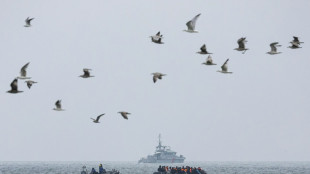
-
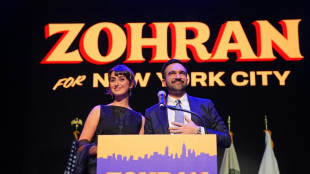 US influencers falsely associate Mamdani with extremist group
US influencers falsely associate Mamdani with extremist group
-
Hungary's Orban to meet Trump in face of Russia oil sanctions
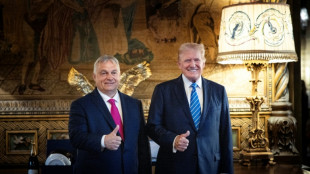
-
 US facing travel chaos as flights cut due to govt shutdown
US facing travel chaos as flights cut due to govt shutdown
-
Liverpool and Man City renew rivalry as they try to narrow Arsenal gap

-
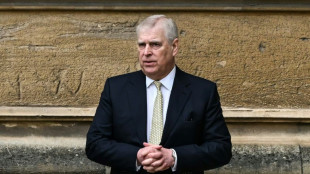 UK's Andrew asked to testify over Epstein as he formally loses titles
UK's Andrew asked to testify over Epstein as he formally loses titles
-
Local hero: 'DC sandwich guy' found not guilty of assaulting officer with sub

-
 Dead famous: Paris puts heritage graves up for grabs
Dead famous: Paris puts heritage graves up for grabs
-
UK grandmother on Indonesia death row flies home
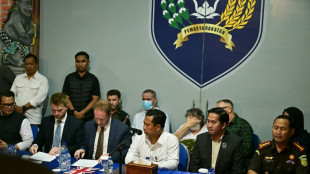
-
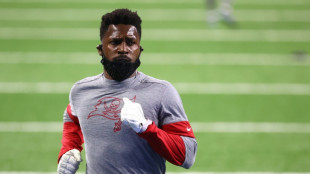 Former NFL star Brown extradited from Dubai to face trial in shooting - police
Former NFL star Brown extradited from Dubai to face trial in shooting - police
-
Chile presidential hopeful vows to expel 'criminal' migrants to El Salvador
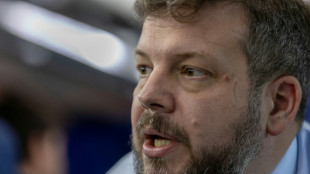
-
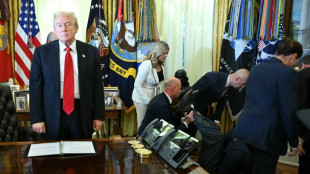 Trump event paused in Oval Office when guest faints
Trump event paused in Oval Office when guest faints
-
NFL Colts add Sauce to recipe while Patriots confront Baker


Depoliticising Eurovision 'impossible', experts say
The Eurovision Song Contest is meant to be about celebrating music and cultural diversity, but politics inevitably seeps in, challenging the competition's long-standing claim to neutrality.
Hopeful artists drawn from 37 countries will compete in this year's contest in the Swiss city of Basel starting next week, with the big finale on May 17.
Politics is officially barred from the event, but as with most years, organisers will have their hands full striving to keep tensions over culture wars and conflicts like Israel's war in Gaza from spilling into the glitzy festivities.
Experts agree that is a tall order.
"It's impossible to depoliticise the event," Dean Vuletic, a historian and the author of the book "Postwar Europe and the Eurovision Song Contest", told AFP.
"It is completely impossible," agreed Jess Carniel, an associate professor at the University of Southern Queensland in Australia.
"With everyone competing under their national flag... there is always an undercurrent of politics."
From the inception of the contest nearly 70 years ago, the European Broadcasting Union (EBU), which organises Eurovision, has insisted on its non-political nature.
But politics have been omnipresent, from an Austrian protest over Spain's Franco dictatorship in 1969 to calls for European unity as the Soviet Union broke apart and Eastern European countries joined the contest in the early 1990s.
- Mass protests -
Before 1998 when Eurovision stopped requiring countries to perform in their national language, some strong political sentiments expressed in songs garnered little attention.
Greece submitted a song in 1976 slamming Turkey over its invasion of Cyprus, "but it was in Greek and there was not much attention", Lisanne Wilken, an associate professor in European studies at Denmark's Aarhus University, told AFP.
Since then, increased media attention and the possibility to put forth messages in English has meant that for "anyone who wants attention for a cause, Eurovision is a really good place to go", she said.
More recent expressions of political condemnation have certainly not gone unnoticed.
Russia's war in Ukraine dominated the discourse around the events in 2022, when Ukraine won the contest and Russia was barred, and again in 2023.
And last year, Israel's war in Gaza cast a long shadow over the event, when thousands of demonstrators protested in the Swedish city of Malmo against Israeli entrant Eden Golan taking part.
Demonstrations are already planned against Israel's participation this year, with Yuval Raphael -- who survived Hamas's deadly attack inside Israel on October 7, 2023 that sparked the war in Gaza -- due to perform her song "New Day Will Rise".
- New flag rules -
Experts say they do not expect protests on the same level as last year.
One reason, Vuletic suggested, was that "the campaign against Israel last year was not successful".
"No country boycotted Eurovision because of Israel" and the country garnered a high score, he pointed out.
Experts also said the EBU's introduction of new rules may have an impact.
The organisers have adopted a new flag policy, barring contestants from displaying flags other than that of the nation they represent, but loosening restrictions on the flags audience members can display.
Eurovision explained that it aimed to "strike a balance to ensure that our audiences and artists can express their enthusiasm and identities, (while providing) more clarity for the delegations when it comes to official spaces".
"I think the decision was mostly inspired by the references to Palestine last year," Vuletic said.
- Trump effect? -
Wilken meanwhile warned that the new policy could "backfire a little bit", with the ban on contestants waving Pride flags, for instance, possibly read as part of "the war on woke".
Carniel agreed, pointing out that there had been "a bit of a backlash against so-called identity politics at the song contest, and criticism of the extent to which Eurovision has really leaned into queer fandom".
By barring contestants from waving Pride flags or other symbols supporting LGBTQ rights, the organisers might "oddly be trying to bring more people in" by emphasising that the contest "is not an exclusively queer event".
The United States may not be part of the contest, but experts said President Donald Trump's anti-diversity messaging could energise efforts by conservative forces in Europe eager to rid Eurovision of its LGBTQ-friendly identity.
At the same time, the Trump administration's attacks on European countries could strengthen the contest's focus on forging a common European identity, Carniel suggested.
"Given the current political climate," she said, "that idea of European unity against the outside is a strong thing."
F.Wagner--VB


